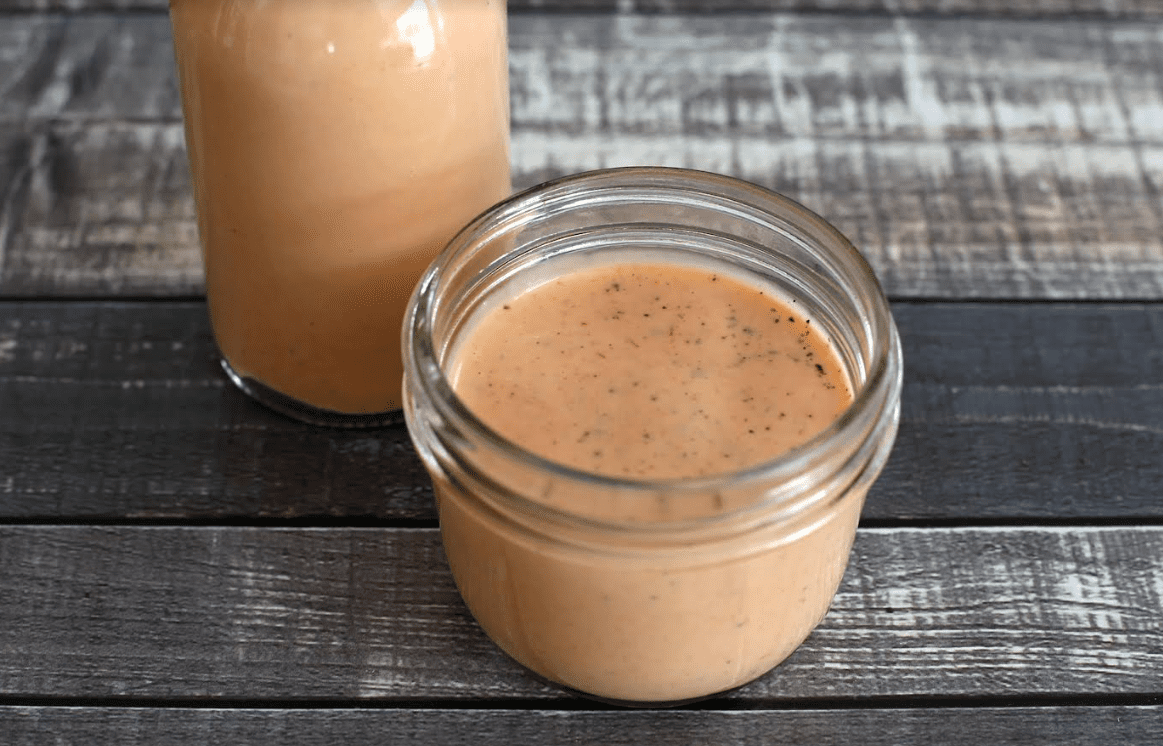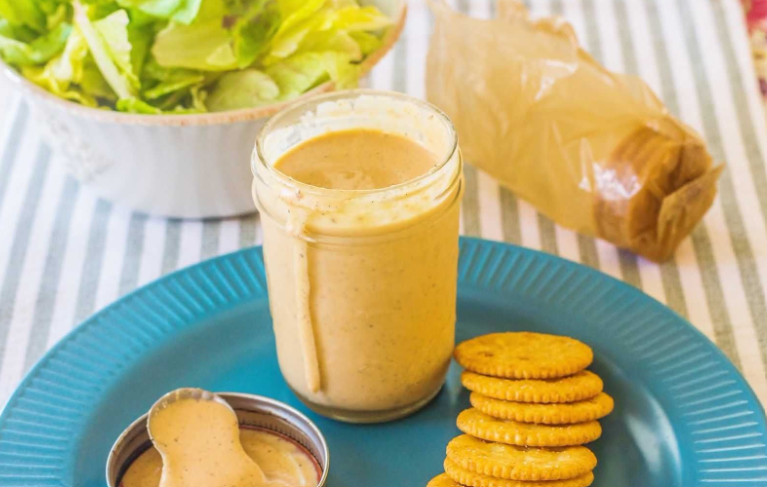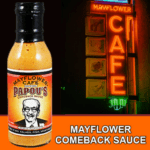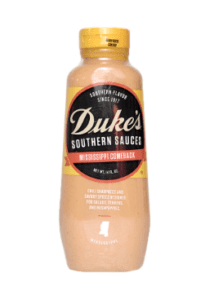
We know comeback sauce originated in a Greek-owned restaurant in Jackson, Mississippi. It’s become so popular that many restaurants started bottling and selling it.
Any Southerner worth his or her salt has eaten comeback sauce. The popular condiment is a rich, creamy, spicy concoction that pairs perfectly with a bowl of fresh salad greens. It also makes the ideal dipping sauce for French fries, onion rings, tater tots, and fried dill pickles. Spicier than ranch dressing, creamier than barbeque sauce, comeback sauce holds its own with a plethora of foods. Try it with roasted vegetables. Spread it on a turkey sandwich. Use as a dip for fresh Gulf shrimp – fried, boiled, broiled or baked! It’s also great on purple-hulled peas, fish and burgers. No matter what you pair it with, comeback sauce is guaranteed to make you want to come back for some more.
Malcolm White has an extensive knowledge of comeback sauce. I heard him make an hour-long presentation on the origins of the sauce at a Southern Foodways Alliance symposium in Jackson, Mississippi back in 2014. The SFA refers to White as “a font of Mississippiana.” A Mississippi native, White and his late brother, Hal White, started the iconic Hal & Mal’s restaurant in downtown Jackson, where comeback sauce served with saltine crackers was a popular item on the appetizer menu. White, like most other food and restaurant historians, couldn’t give a definitive origin of comeback sauce. Some say it sprang from the Rotisserie Restaurant in Jackson, while others say comeback sauce came from the Mayflower Café.

What we do know for sure is that comeback sauce originated in a Greek-owned restaurant in Jackson, Mississippi. John Currence, owner of City Grocery and Ajax Diner in Oxford, Mississippi wrote about comeback sauce for the James Beard Foundation. Currence explains that one of the larger groups of Greek immigrants to hit the South settled in north central Alabama to work in the mining and steel industries. “As the steel market softened and/or folks started to migrate out of it, Greek families began setting up restaurants in and around Birmingham. As families grew, movement was inevitable, and a number of those families ended up moving west to Jackson, Mississippi. The Mayflower, Primos, Dennery’s, and Crechele’s were all part of those families’ legacies.” The Elite in downtown Jackson can also be added to that list. Currence says he regularly uses comeback sauce on Croque Monsieur and as a sandwich dressing. “It’s also great for French fries, so we just make a little and keep it in the fridge. It’s kinda good on everything.”
The sauce made its first appearance either in the late 1930s at the Mayflower Café or early 1940s at one of the Dennery-owned restaurants. No matter which restaurant “invented” the sauce, it spread like wildfire and was soon a staple in the Greek restaurants in Jackson. Over the years, it has spread beyond the borders of Jackson and into other parts of the state and to other (mostly Southern) states. Made in restaurant kitchens from scratch, the basic comeback recipe calls for ketchup, mayonnaise, chili sauce, yellow onion, Worcestershire sauce, garlic, paprika black pepper, salt, salad oil and lemon juice. There are variations, but as someone who is a comeback sauce snob, I can tell you that if the recipe calls for onion powder or garlic powder, run the other way. A true comeback sauce uses grated yellow onion, including the juice, and minced fresh garlic. I’ve seen variations that call for sriracha instead of chili sauce. Take my word for it. Just say no. Patsy R. Brumfield is a NOLA-centric writer who posted a comeback sauce recipe in her February 6, 2013 blog post on Southfacin’ Cook. Her recipe calls for a tablespoon of creamy peanut butter. All I can say is try it, you may like it.
The Clarion-Ledger newspaper once printed Dennery’s comeback sauce recipe in their food section. My mother cut out the recipe and kept that little yellowed piece of newsprint in her recipe box for as long as I can remember. She followed the recipe to the letter, and it tasted every bit as delicious as the comeback sauce served on the table alongside a basket of crackers at Dennery’s restaurant, which was located near the Mississippi Coliseum in Jackson. I loved eating at Dennery’s, and always preferred my comeback on Captain’s Wafers. Some called that a “redneck hors d’oeuvres.”

Hattiesburg restaurateur and food writer Robert St. John wrote that comeback sauce “is the offspring of the incestuous marriage between 1000 Island dressing and remoulade sauce.” He calls it “the Queen Mother of all Mississippi condiments.”
The sauce has become so popular that many restaurants started bottling and selling it, not only in their restaurants but in other outlets as well. Mayflower Café sells Papou’s Sauce. Georgia Blue sells their version of comeback sauce both in their restaurants as well as in area grocery stores. A comeback sauce bottled under the Thames Foods label comes from the shelf-stable recipe developed by John and Nita Thames who owned Fat Tuesday’s restaurant in Ridgeland. Oxford Falls sells a bottled comeback dressing.

And Duke’s, a Richmond, Virginia-based company famous for their mayonnaise, makes Mississippi Comeback Sauce. (At least they acknowledged Mississippi in the name of the product.)
Truly the South’s most beloved condiment, comeback sauce is here to stay.
While my mother’s dog-eared comeback recipe is long lost after many moves, I copied it down while in college and still have my hand-written version. This is possibly as close to the original recipe as any I have found.
#####
RECIPE: Comeback Sauce
- 1 tbsp. water
- 2/3 cup chili sauce
- ½ cup vegetable oil
- I lemon, juiced
- 1 tsp. Worcestershire sauce
- 1 dash Louisiana hot sauce
- 1 tsp. black pepper
- 1 small yellow onion, grated, with juice
- 1 cup mayonnaise
- ¼ cup ketchup
- 1 tsp dry mustard
- 1 dash paprika
- 1 tsp. salt
- 3 cloves garlic, finely minced
Assemble all ingredients and process in a blender or food processor. Store in the refrigerator for up to one week.











